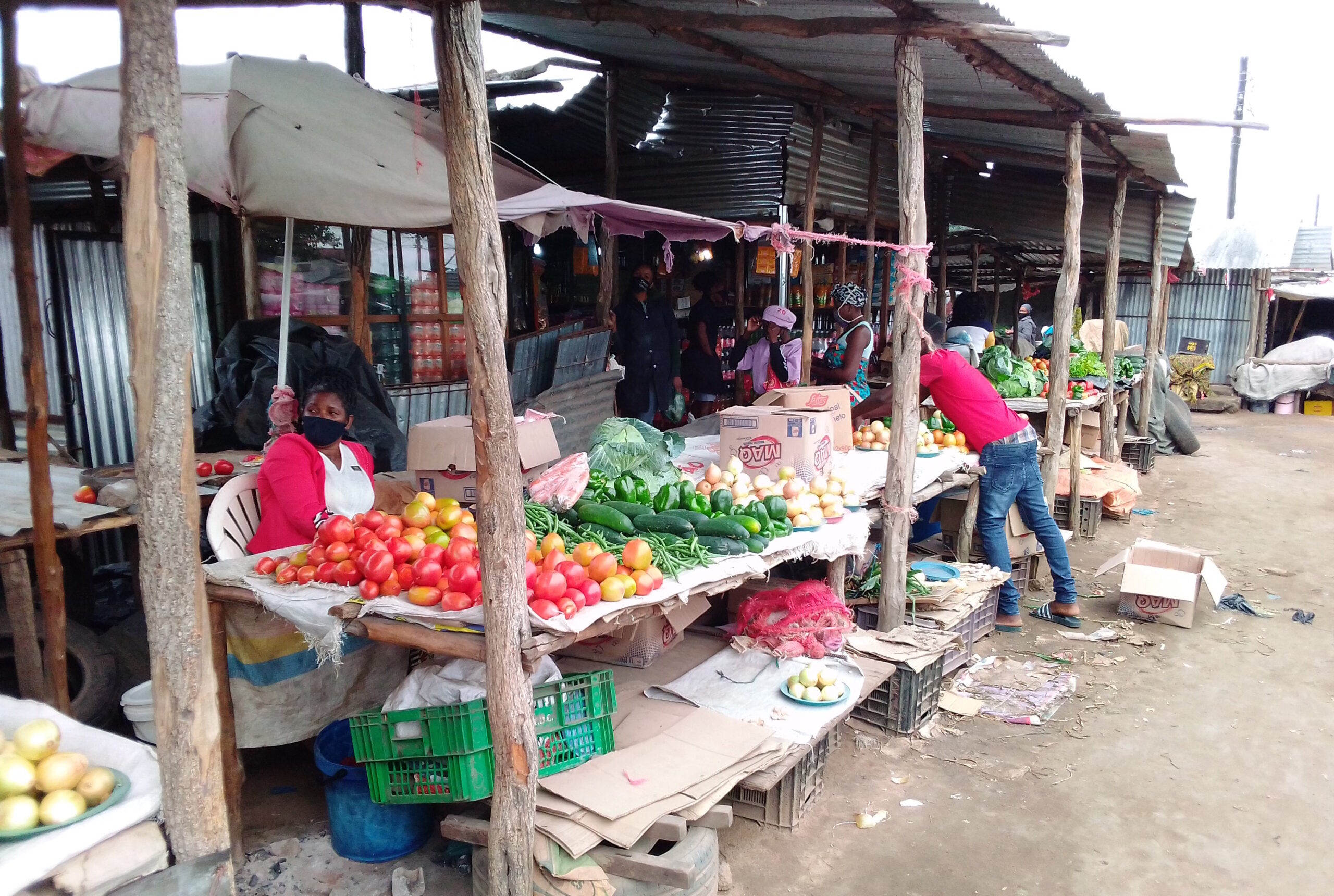
Courage Masona THE outbreak of the Covid-19 pandemic has to a large extent reversed the trajectory of most indicators of economic performance. Despite the unprecedented increase in fatality rates across the globe, lockdowns have negatively affected economies in ways that are very different from other past crises.
The pandemic has exacerbated the deteriorating economic situation in Zimbabwe and curtailed the growth of small-and-medium enterprises (SMEs), which are a vital engine in the economy. SMEs play an integral role in the development of a country.
These firms are everywhere across the world and many of the large businesses today started small. Therefore, SMEs require constant attention as they contribute significantly to job creation, especially among youth, global economic development, and spearhead innovation.
According to statistics, in Zimbabwe, SMEs make up more than 70% of all businesses; employ more than 60% of the country’s workforce, while contributing above 50% to Zimbabwe’s GDP.
Therefore, SMEs are an important source of economic resilience that can mitigate the adverse impact of the Covid-19 pandemic crisis on the business sector, economy, and society.
However, one of the key obstacles that have undermined resilience during the Covid-19 crisis is the inability of SMEs to adapt their business models to changes in the business conditions, consumer purchasing behaviours, and operations.
Simply put, unlike past crises, the Covid-19 crisis requires a fundamental change in the business process from the old.
The old was characterised by predictability and stability of the operating environment, competition, and customer behaviour that was based on physical and in-person interaction with suppliers and buyers alike, to the new one underpinned by digital technology and infrastructure, remote and 24/7 “presence” on customers’ smartphones, tablets, and personal computers.
- Chamisa under fire over US$120K donation
- Mavhunga puts DeMbare into Chibuku quarterfinals
- Pension funds bet on Cabora Bassa oilfields
- Councils defy govt fire tender directive
Keep Reading
Acceleration in the shift from in-person to online shopping behaviour requires a presence on online platforms, interactive, easy-to-use websites, and regular and customer experience-immersing updates on firm Facebook and Instagram profiles.
To this end, limited digitalisation of operations, business process, management practices, and marketing and sales functions have meant that many SMEs in Zimbabwe underperform and they are laggards on digital transformation.
Thus, while the Covid-19 outbreak created immense opportunities for SME businesses, limited digitalisation of business processes and marketing operations, it has undermined their ability and capacity to reap the benefits.
The implication is that those firms, subnational governments, and countries, which prior to the pandemic had invested heavily and smartly in information and communications technology infrastructure, broadband Internet networks, and supporting human capital, are reaping hefty rewards.
Those that did not are facing formidable difficulties to adapt to the evolving digitalisation-driven business environment, global trade, and commerce system, and society.
Thus, to remain relevant and competitive, laggards on digital transformation have either to digitalise or lose out permanently to competitors.
Interestingly, the outbreak of Covid-19 has exposed fundamental problems, which were operating for decades under normal conditions that are characterised by stability, certainty, and predictability “concealed”.
The first lesson is that good leadership and management during normal conditions may falter during times of crisis that demand quick and accurate high-impact decision-making on issues that affect millions of people.
Secondly, in a decentralised political system, the multi-tiered and distributed lengthy decision-making process enhances public participation and engagement in the public policy process, but hamstrings and curtails quick decision-making under conditions of high uncertainty that characterise emergency and crisis situations.
Thirdly, some structural problems, specifically the digital divide between large and SMEs, across regions, sections of society, and between urban and rural areas, influenced the performance and effectiveness of the response to the Covid-19 pandemic and will also determine the pace and direction of recovery efforts in future.
The fourth lesson is that structural obstacles faced in operating effectively during a Covid-19 induced “transient” economy also have implications for the kind of measures that need to be taken to ensure that the economy does not face similar formidable obstacles in the future.
Nevertheless, containing the short-term ramifications of the pandemic is one thing, creating sound and sustainable policies that can support an enabling social and economic environment, which is vital for high, inclusive economic growth, and development is another.
It is against this background that the premise of this article is that short-term and medium-term policies and programmes should be influenced by considerations of viability and sustainability in the long term. This is because policies once implemented are not easy to rescind.
To this end, the initiatives I propose in this article, while driven by the urgent need to address short-term problems that are attributable to the raging Covid-19 pandemic crisis (emergency response), I situate the proposed pathways into what is needed for recovery in the medium and long term.
The initiatives I propose fall into four broad areas, including digitalisation of public service delivery and government administration services; strengthening the enabling environment for the public and private sector remote working and operations; tackling rising unemployment and education system crisis; and creating an enabling business environment to support sustainable participation in global value chain activities.
In this vein, the expectation is that implementing the changes this article proposes will foster agility in the alignment of the Zimbabwean government, business sector, and society.
This comes with the new demands to reconfigure, renew, and reposition product and service production and delivery processes from primary production and export to a high value-added, global value chain-based, knowledge economy that is imperative for robust and resilient economic recovery in the next normal economy and beyond. Generally, what is true for commercial firms is to a large extent also true for government institutions and agencies.
In the short-to-medium term, government, business community, and other relevant stakeholders should leverage high smartphone ownership and Internet usage to create solutions that reduce the impact of the economic slowdown on SME operations.
To this end, mainstreaming the digitalisation in not only business processes and marketing, but also the business model used to deliver value, has the highest potential to strengthen SME contribution to the economy and society.
The existence of a strong and rapidly growing e-commerce in Zimbabwe is an opportunity that a digitalised SME sector can exploit to not only contribute to mitigating the impact of the Covid-19 pandemic but also, more importantly, enable the sector to lay a solid foundation for higher competitiveness
In this regard, efforts should be made to enhance SME access to e-commerce through short-term training on website development, e-market participation, product improvement and marketing, improving management practices, and employee skill improvement.
Secondly, there is a need to provide requisite information and knowledge to SMEs on using mobile applications that facilitate access to financial resources through online platforms including peer-to-peer lending, crowd funding, and commercial bank online banking platforms.
Thus, despite its devastating effects on the economy and society, the Covid-19 pandemic will leave a legacy that is likely to guide policy action for the better.
Hurried action, which was necessitated by the emergency of the Covid-19 pandemic, while daunting and challenging, has provided and equipped the government, business sectors, civil society, and the public with invaluable lessons learned.
This is with respect to what works and what does not, opportunities, obstacles, and challenges that will in various ways help in designing and implementing the future of workplaces, education, and health service provision for post-Covid-19 pandemic society.
Such a society will be based on and driven by remote working and education, telemedicine, and contactless production of goods and delivery of services.
Doing that will go a long way to turn what some pundits have described as a crisis like no other into an invaluable opportunity for the economy and society to achieve high, inclusive, and sustained growth once the crisis is overcome.
- Masona is economist and lecturer at Zimbabwe Ezekiel Guti University. — cmasona@zegu.ac.zw. These weekly New Perspectives articles published in the Zimbabwe Independent are coordinated by Lovemore Kadenge, an independent consultant, past president of the Zimbabwe Economics Society and past president of the Chartered Governance & Accountancy Institute in Zimbabwe (CGI Zimbabwe). — kadenge.zes@gmail.com or mobile: +263 772 382 852.










